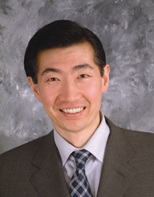Institutional Investment: What is your impression on the current turbulence in the hedgefund market. Will it help to separate the good from the bad funds?
Yoon: I think August was a precursor of the impact that hedge funds can have on the capital markets given the enormous Assets under Management growth of the industry during the past 5 years. This was the first month where I believe that hedge funds were the primary driver of market volatility since LTCM in 1998. The deleveraging that took place impacted almost all strategies. And, I think it surprised some investors that not only were funds with exposure to subprime hurt, but funds in totally unrelated strategies. Some of the explanation is likely due to the impact of multi-strategy funds who had exposure to subprime and other illiquid investments who sold liquid investments to reduce risk and/or to make prime broker margin calls. In my opinion, the volatility in August was healthy for the industry as some investors became too complacent with the expectations that they could earn high returns with little risk. Moreover, I think August helped investors to better understand the types of risks that their hedge fund investments take on and to better identify which funds are generating alpha versus relying on beta to drive returns. However, given the sharp rally during the final two weeks of the months, the losses were sharply reduced for many funds (particularly in strategies such as emerging markets) so that investors may not be able to see the risks of their particular investments just based on a month-end return.
Institutional Investment: Are there any specific lessons that investors have to learn from the past weeks?
Yoon: The same factors seem to be the root causes of market crises historically: Beta, Leverage and Illiquidity. This was again the case in August. Given the bull market and surfeit of liquidity in the markets, investors were in my opinion chasing returns with the view that the goldilocks scenario was in tact. As a result, there was too much leverage for many hedge funds. Prime brokers were contributors to the level of leverage as they were willing to provide high levels of leverage because they thought the level of risk was low given the low volatility in the equity and other markets during the past year. You can attribute some of this to the fact that value-at-risk (VaR) continues to be primary risk measure used by many, and VaR is dependent on historical volatility. Most likely going forward, hedge funds and prime brokers will utilize additional risk measures to take into account the potential for crisis situations.
Institutional Investment: What are the most important questions in the due dilligence of new funds for your hedgefund portfolio?
Yoon: It is difficult to narrow it down to just a few questions as carrying out the entire investment process for each investment is vital for successful hedge fund investing. The ones that I think that are probably the most important to begin with are as follows:
-Tell me about your background and your experience in managing the hedge fund strategy that you are employing.
-What is your “edge” in running your strategy? How do you differentiate yourself from your competitors?
-What types of risks do you run with your strategy? How do you manage these risks and how do you measure your returns that are due to alpha versus beta?
-What are the best and worst market environments for your strategy?
-How do you manage the back office and the business side of running the hedge fund?
Institutional Investment: What are hedgefund categories, you like most at the moment?
Yoon: Given the market turmoil during past months, we think that strategies that focus on the market dislocations that have resulted will generate strong returns with limited downside. In particular, in the short run we think strategies where the “baby has been thrown out with the bathwater” are attractive. This includes bank loans, merger arbitrage, and L/S equity strategies. Overall, we are still waiting to see whether the credit markets return to normal to better assess the potential for hedge fund strategies in the long term.
Institutional Investment: What are the major characteristics for investors to be taken into account when investing in fund-of-hedgefunds?
Yoon: I think there are three major characteristics
-Team of captial markets specialists. That is the only way to understand the hundreds of strategies that hedge funds utilize, some simple and others complex. My background is that I was the head of trading risk mgt for ING in the Americas from 1994-2000 and we employ risk management experience and knowledge of hedge fund strategies from the experience we have gained on the trading floor.
-Strong investment process. Particular focus on due diligence of hedge funds and risk management. The process has to be rigorous and applied for every hedge fund investment. We have a head of risk mgt and head of operational due diligence to focus on these areas.
-Full resourcing. Research, Operations, Risk Management, etc..
***
Harold Steven Yoon, Head of the fund of hedge funds team, joined ING Investment Management in 2002. Mr. Yoon is portfolio manager for the funds of hedge funds offered by ING Investment Management. Prior to joining ING, Mr. Yoon was portfolio manager for a long/short equity hedge fund for Kendall Square Capital Management, LLC, where he was a managing partner. From 1994-2000, he was responsible for the trading risk function for ING Barings in the Americas.
“Strategies focussing on the market dislocations that have resulted will generate strong returns with limited downside”

